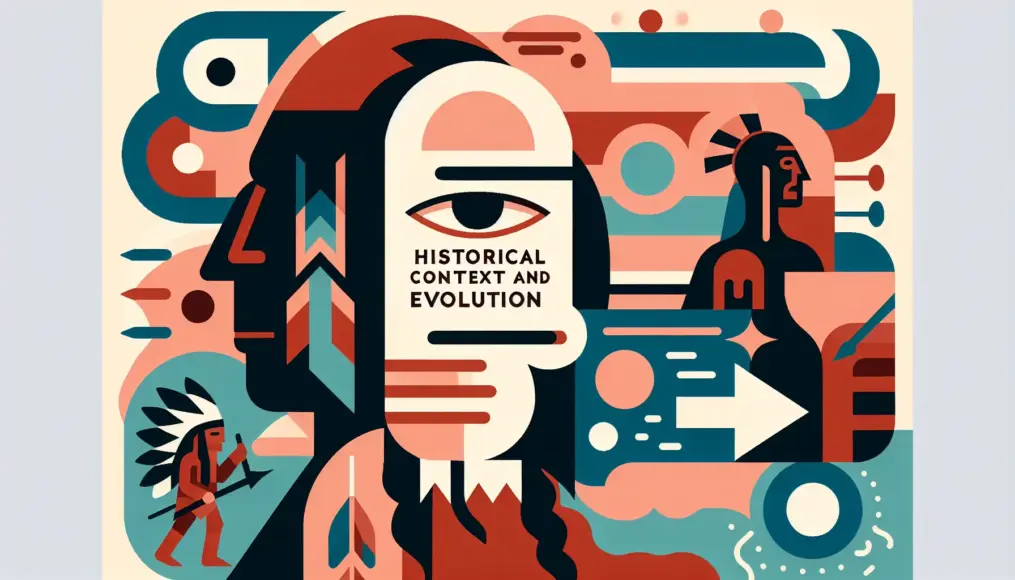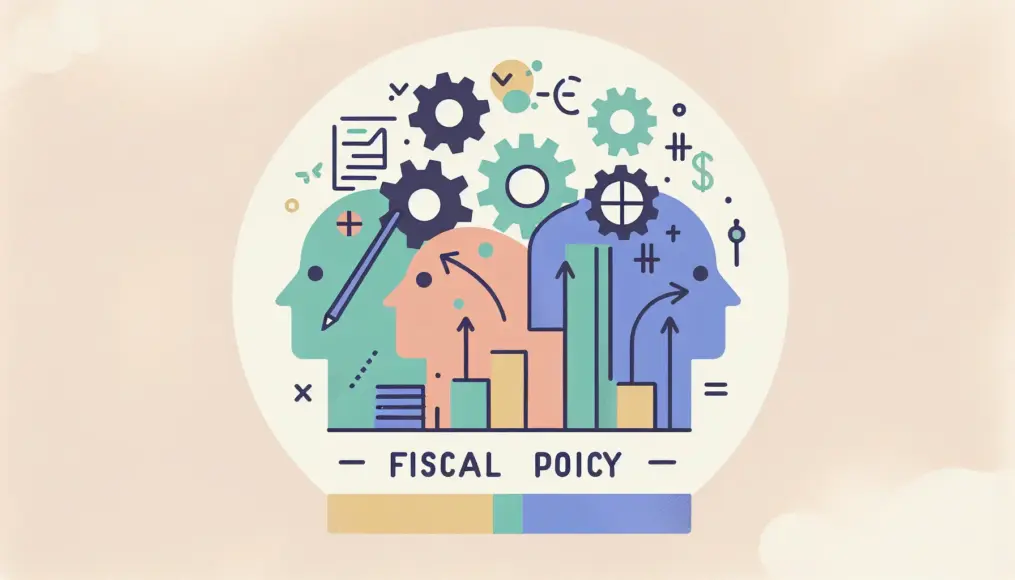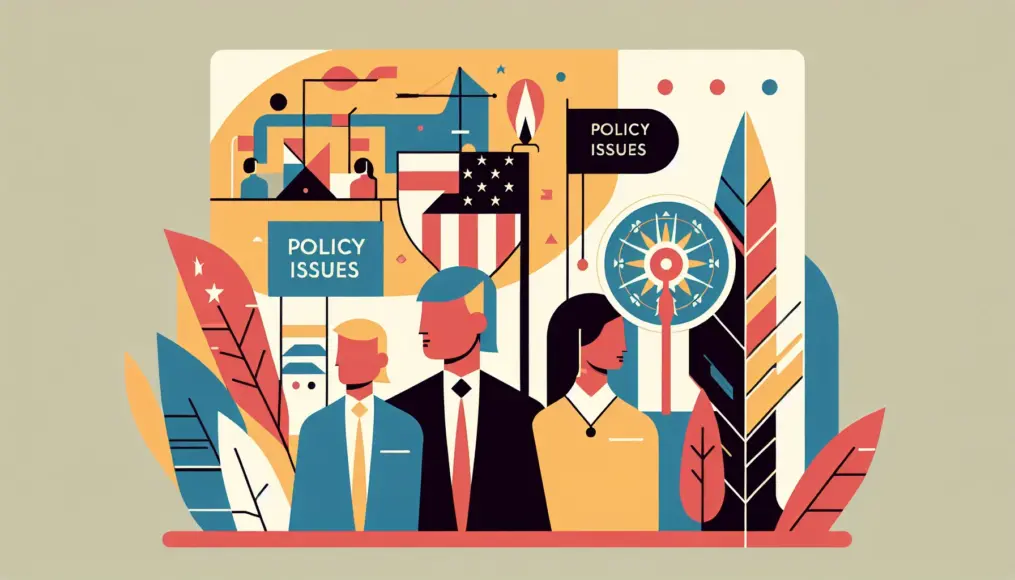Understanding the evolution of politics and power in Japan sheds light on the challenges we face as citizens today. By reflecting on the historical journey from post-war political reforms through the Cold War era to the present day, we can grasp the dynamics of power and its transformations. This reflection also prompts us to consider how each of us can engage in politics and hold power accountable.
In this article, we’ll delve into the historical context of politics, the shifts in power structures, and the contemporary political issues at play. We’ll highlight the significance of civic engagement and the challenges within the electoral system, revealing how politics intersects with our everyday lives. We invite you to stay with us until the end.
- Exploring post-war political reforms and their impacts
- Insights on the concentration and distribution of power
- Understanding the importance of citizen participation
The Historical Background of Japanese Politics
When we take a look back at the history of politics in Japan, it becomes clear that various events have shaped the current power structure we see today. In particular, the political reforms that took place after World War II were a crucial period that laid the groundwork for democracy. During this time, many citizens became engaged in politics, emphasizing the importance of participation. As Japan navigated the challenges of the Cold War, its political landscape continued to evolve. Let’s delve deeper into the post-war political reforms and the influences of the Cold War.
Post-War Political Reforms
In post-war Japan, significant political reforms were implemented under the occupation of Allied forces. These reforms aimed to limit the authority of the Emperor and emphasize popular sovereignty. A new constitution was enacted, ensuring the protection of fundamental human rights. Such changes fundamentally transformed the nature of political power, holding great significance for us as citizens.
Moreover, the revision of the electoral system and the establishment of political parties were also pursued. This opened the door for a political landscape that reflected diverse opinions, allowing citizens to engage more actively in politics. These reforms helped to reduce the concentration of power, enabling a greater number of people to participate in the political process.
- The political reforms in post-war Japan emphasized popular sovereignty.
- The new constitution guaranteed fundamental human rights.
- The establishment of political parties and the revision of the electoral system encouraged citizen participation.
The Impact of the Cold War
During the Cold War, Japan forged its own political path while being heavily influenced by the United States. Externally, the alliance with America was strengthened, and domestically, economic growth was promoted. However, it’s important to note that this growth came with an increase in the concentration of political power.
Additionally, as security policies became a priority due to the Cold War, political transparency and citizen participation often took a back seat. The political climate of this era sparked debates about the nature of power, juxtaposed against the backdrop of economic prosperity. By understanding how Cold War politics shaped power dynamics, we can better connect with the political landscape we encounter today.
- Japan during the Cold War was influenced by the United States.
- While the economy grew, there was also an increase in the concentration of power.
- Political transparency and citizen participation sometimes lagged behind.
Changes in Power Structures
In Japanese politics, the evolution of power structures is a crucial theme. By understanding how the nature of power has shifted since post-war political reforms, we gain deeper insights into the current political landscape. In this section, we will explore the rise and fall of political parties, as well as the concentration and distribution of power. I hope this discussion will help us reflect on how we perceive and engage with politics and power.
The Rise and Fall of Political Parties
In post-war Japan, a variety of political parties emerged and began to play significant roles on the political stage. Notably, the rise of the Liberal Democratic Party (LDP) greatly contributed to political stability. The LDP held power for an extended period and played a pivotal role in supporting economic growth. However, this dominance also led to a diminished presence of other parties, resulting in a somewhat monotonous political environment.
As time passed, there were revisions to the electoral system and the emergence of new political parties. This revitalization has brought attention back to political diversity, allowing the voices of the public to be better reflected. Through the rise and fall of political parties, we are encouraged to consider how we choose and support power.
- The rise of the Liberal Democratic Party contributed to political stability.
- There was a diminished presence of other political parties.
- The emergence of new parties has renewed focus on political diversity.
Concentration and Distribution of Power
Understanding the dynamics of power concentration and distribution is essential for grasping political landscapes. Particularly during the Cold War, political power tended to concentrate in specific groups. This often resulted in decision-making being dominated by a few individuals, making it difficult for the general public’s voices to be heard.
However, in recent years, there has been a noticeable trend toward the distribution of power. The importance of civic engagement and local governments has increased, leading to a broader sharing of power among more people. This shift is expected to make it easier for each of us to participate in politics, while also strengthening the mechanisms for holding power accountable.
- During the Cold War, power was prone to concentration in specific groups.
- Recently, the importance of civic engagement and local governments has grown.
- The distribution of power has made political participation more accessible.
Contemporary Political Issues in Japan
Political issues in modern-day Japan are intricately linked to our daily lives as citizens. Among these, the challenges of the electoral system and the significance of political participation are topics that many people find relevant and engaging. By understanding these issues, we can reflect on how to better engage with politics and utilize power more effectively. In this section, we’ll delve deeper into these important themes.
Challenges of the Electoral System
Japan’s electoral system faces several challenges. One major issue is the combination of single-member districts and proportional representation, which significantly impacts election outcomes. In single-member districts, certain political parties tend to gain advantages, making it difficult for minority opinions to be represented. Consequently, there are concerns that the diverse voices of the public may not adequately reach the political arena.
Another notable challenge is the declining voter turnout, particularly among younger generations, who seem to have less interest in politics. If this trend continues, our rights may not be fully exercised, leading to a situation where politics is dominated by a select few. As calls for a review of the electoral system grow, it’s essential for us as citizens to consider how we should respond.
- Single-member districts tend to favor specific political parties.
- There is a challenge in adequately representing minority opinions.
- Declining voter turnout reflects a waning interest in politics.
The Importance of Political Participation
Political participation is incredibly important for us as citizens. To ensure our voices are heard in the political sphere, participation is essential. There are various ways to engage in politics, such as community activism, local volunteering, and voting in elections. Through these actions, our rights and opinions can gain the respect they deserve.
Moreover, political participation plays a crucial role in supporting the foundations of democracy. When individual opinions come together, it paves the way for building a better society. Active engagement in politics is necessary to fulfill our role in monitoring those in power. Why not start participating in politics in your community today?

If you want to deepen your understanding of the electoral system, check out this article: “Exploring Japan’s House of Representatives Election System: Its History and Impact.” By delving into the historical background and impacts of Japan’s electoral system, you can gain a greater appreciation for the significance of political participation.
- Political participation is vital for reflecting citizens’ voices.
- Community activities and participation in elections are forms of engagement.
- By participating, we strengthen democracy.
The Relationship Between Citizens and Politics
The relationship between citizens and politics is deeply intertwined with our daily lives. Politics affects us in many ways, making it crucial for citizens to engage actively. In this section, we will explore the importance of civic engagement and its role in holding power accountable. Let’s take a closer look at how we can participate in politics and keep a watchful eye on those in power.
The Importance of Civic Engagement
Civic engagement is a vital means of conveying our voices to the political sphere. Through local events and volunteer activities, we can share our opinions and take action alongside our peers. This involvement increases interest in political matters and encourages more people to join in.
Moreover, civic engagement is not just about expressing opinions; it also leads to concrete problem-solving. For instance, by actively addressing issues like environmental concerns or community safety, we can influence those in power. Through civic activities, we take the first steps toward building a better society.
- Civic engagement is a way to voice opinions in politics.
- It also contributes to solving local issues.
- Taking action is a step toward creating a better society.
The Role of Monitoring Power
Monitoring power is an essential role for us as citizens. Since politics directly impacts our lives, it is vital to keep an eye on how power is exercised. When citizens engage and share information, it creates a deterrent against abuse of power and corruption.
Furthermore, strengthening our monitoring function increases political transparency. By sharing information and exchanging opinions, our voices become more likely to be heard. As citizens remain vigilant, those in power may feel compelled to act more honestly. It’s important for each of us to be aware that we are all watchdogs of power.
- Watching how power is exercised is a crucial citizen role.
- Sharing information enhances political transparency.
- Citizens’ vigilance influences the behavior of those in power.
Conclusion
In this article, we explored the evolution of politics and power in Japan from various perspectives. By reflecting on post-war political reforms and the influence of the Cold War, we also highlighted the importance of modern electoral systems and citizen activism. It’s clear that when each of us participates in politics and keeps a close eye on power, we lay the groundwork for building a better society.
Power directly impacts our lives, making it crucial for us to embrace our responsibilities as citizens. We need to ensure our voices are heard through our engagement in politics. Moving forward, let’s actively participate in shaping our future and maintain a vigilant attitude towards those in power.
- The nature of power has changed through post-war political reforms.
- Citizen activism and political participation are key to building a better society.
- Strengthening the oversight of power enhances political transparency.
So why not take a step towards making your voice heard in politics? Share your thoughts in the comments!



Comment